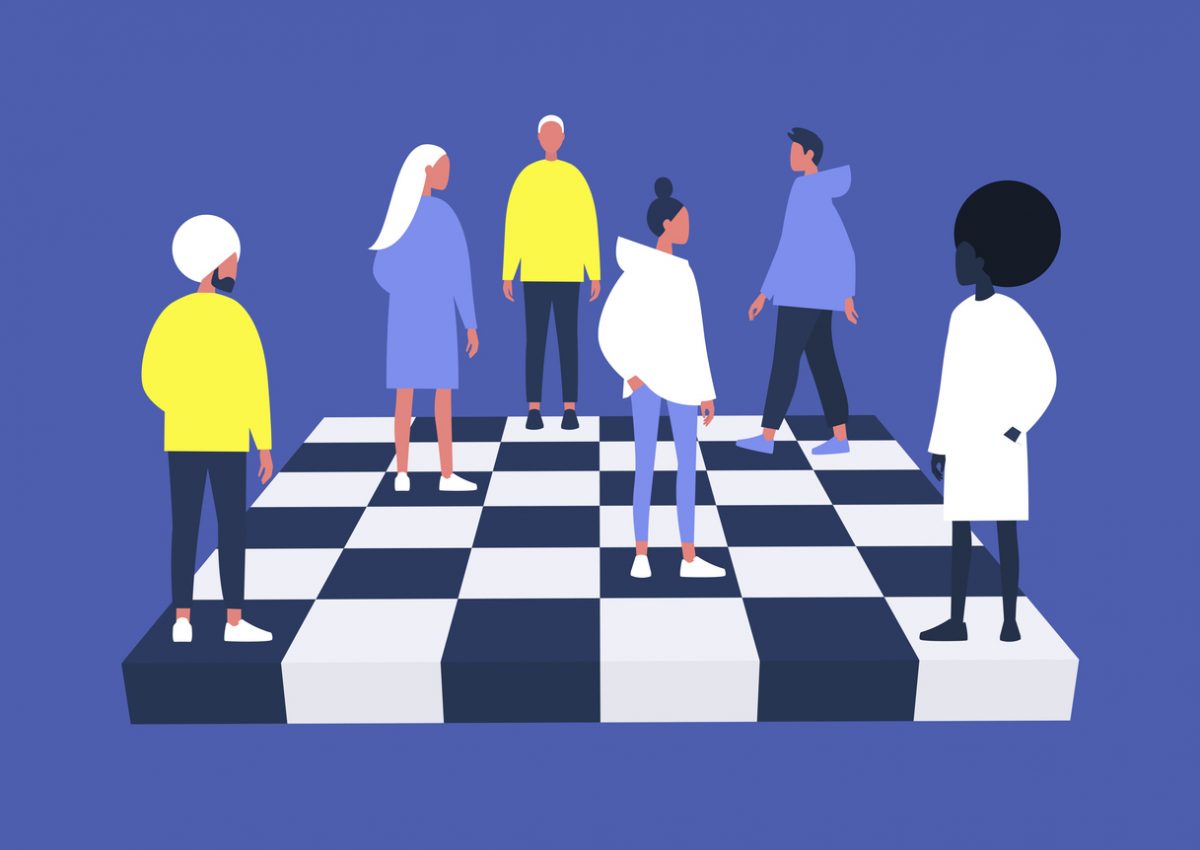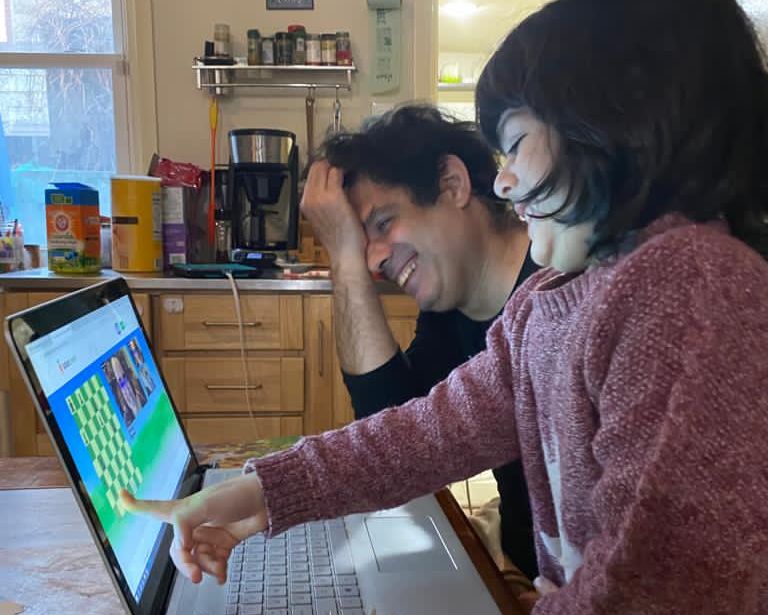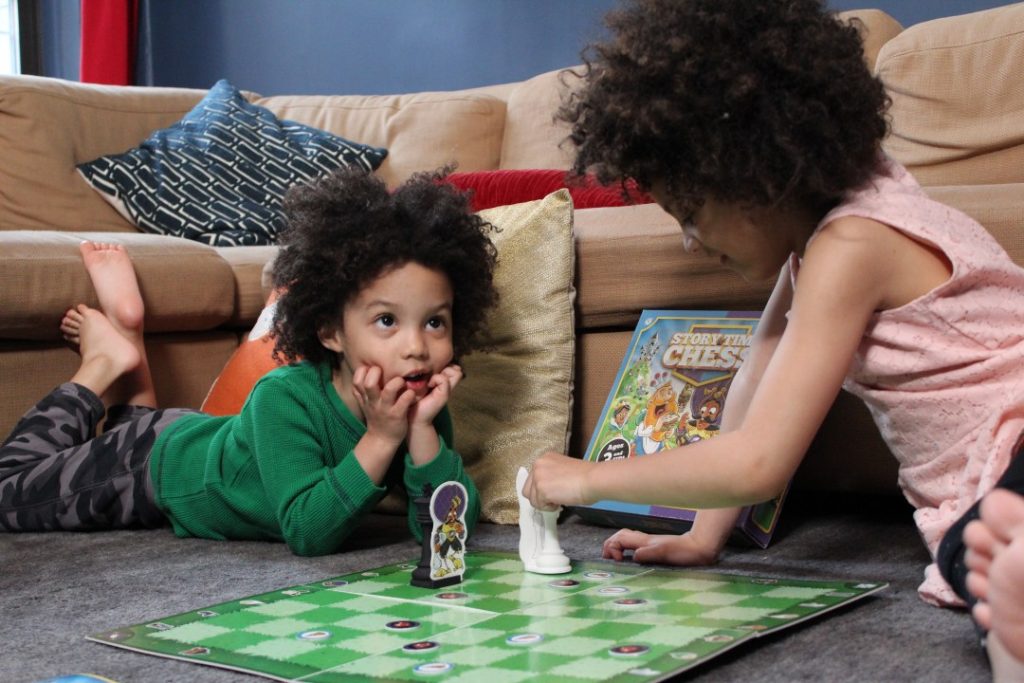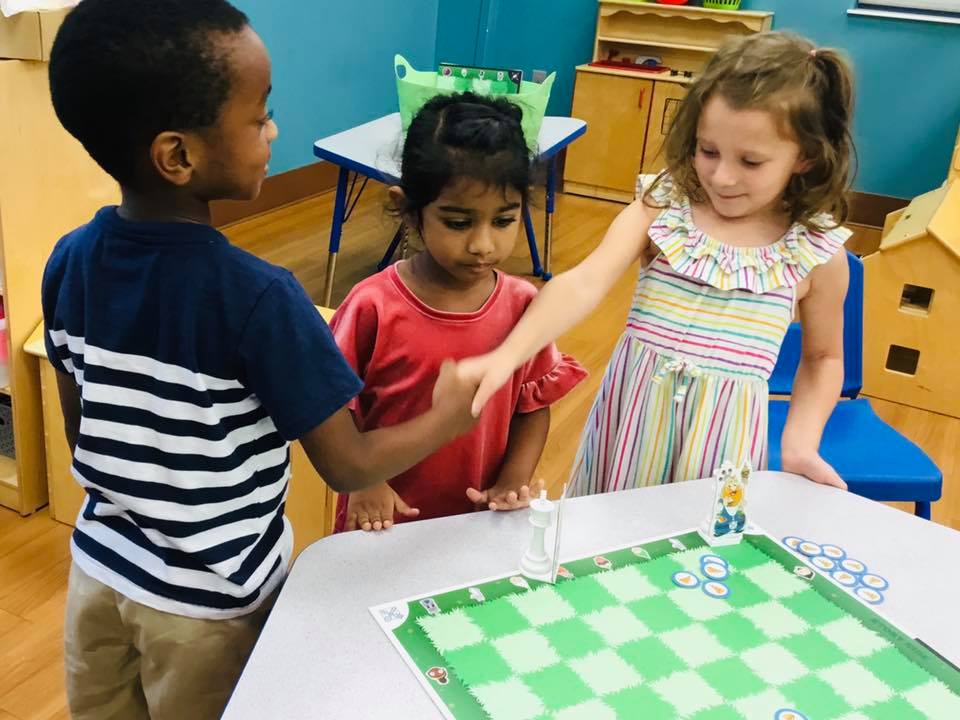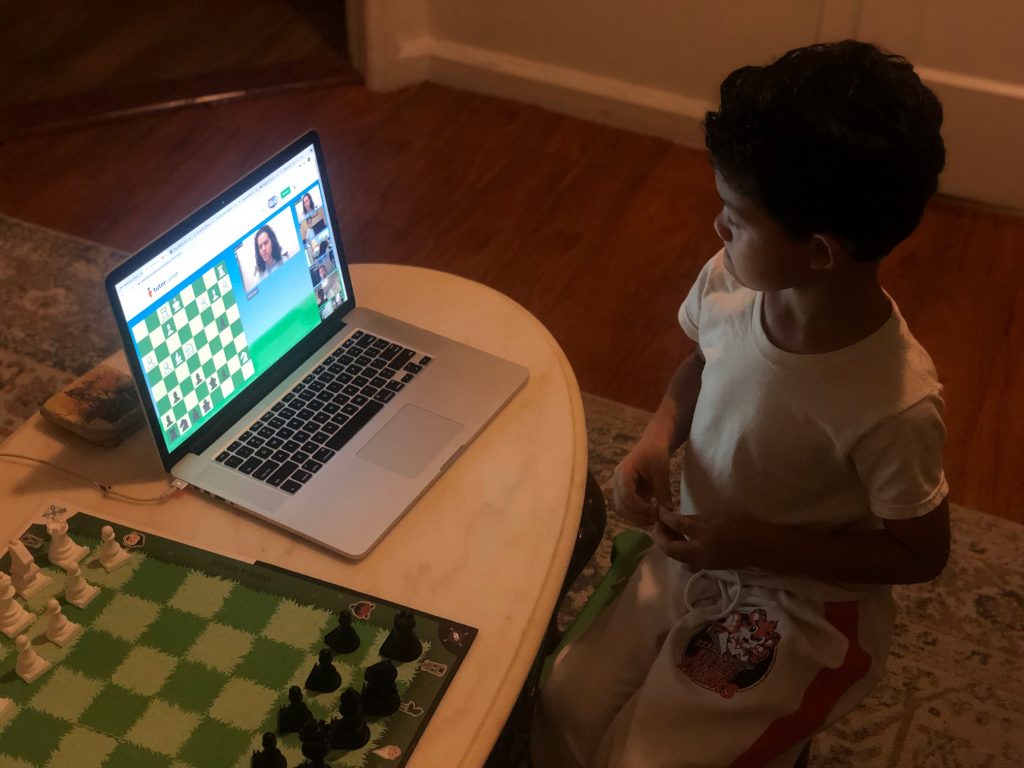Since the game of chess emerged in India some 1,500 years ago, it has always presented the possibility of an ideal level playing field: two sides of equal strength vie for control of sixty-four identical squares. But the road to equality and inclusion among its players has often proved difficult to navigate.
Until the recent advent of online play, mere access to the game was often reserved for the more privileged and institutional bias remains an issue to this day. But in the last few decades, the chess world has made progress toward a more equitable culture around the game, and chess programs for underserved populations flourish worldwide.

Thinking Cup Games staunchly supports increased inclusion for players of all ages, races, nationalities, gender identities, and socioeconomic backgrounds. In honor of Martin Luther King, Jr.’s birthday this year, we’d like to highlight some of the people, projects, and programs that have championed inclusion and diversity throughout the chess world.
- Charles Lawton
National chess master Charles Lawton, a professional since the early 1980s, once arrived at an Alabama chess tournament as the third-ranked player. Lawton, a Black Navy veteran from St. Louis, sat down to make the opening move in his first game of the tournament, only to be stopped immediately by the tournament director, who told him that the board was reserved for players only. Assuming Lawton was a spectator, the director called security and it was only after Lawton produced his ID and pointed to his name in the rankings that he was permitted to play.

Lawton, now known around the world as a powerful player and passionate advocate for bringing new players into the game, says experiences like his are sadly not uncommon for chess players of color. But Lawton has also witnessed something of a renaissance right on his home turf, the St. Louis Chess Club, wherein 2013 he described regularly seeing wide demographic diversity represented at tournaments.
2. Brooklyn Castle
Since 2000, Intermediate School 318 in Brooklyn, New York, has consistently fielded the best middle school chess team in the United States, and championed in-school chess lessons for more than 50% of their ~1,600 students.

Katie Dellamaggiorre’s award-winning 2012 documentary, Brooklyn Castle, shone an international spotlight on the incredible students and faculty behind I.S. 318’s chess program. Despite recession-induced budget cuts, the team’s students, many of whom are first-generation Americans living below the poverty line, have racked up over 24 national championship trophies in the last 22 years.
Rochelle Ballantyne, now 27, was a member of the I.S. 318 team and a prominent subject of Brooklyn Castle. In 2013, she told Nicholas Kristof of The New York Times, “We were meant to break stereotypes. Chess isn’t something people are good at because of the color of their skin. We just really work very hard at it.”
The continued success of I.S. 318’s chess team is a testament to the students’ dedication and discipline, and a powerful reminder that chess should truly be anybody’s and everybody’s game.
3. Phiona Mutesi: Queen of Katwe
In 2012, as Brooklyn Castle premiered to critical acclaim, another unlikely champion emerged on the other side of the world in Kampala, Uganda. Born into extreme poverty, Phiona Mutesi dropped out of school at age nine to sell maize in the local market following the deaths of her father and sister. Five years later, in 2010, she represented Uganda at the 39th Chess Olympiad in Russia. Two years after that, Mutesi had won her third Ugandan national championship.

Mutesi’s remarkable journey was depicted in the 2016 film, Queen of Katwe, and compelled a legion of young players to begin learning the game. As educators, one of our highest priorities is to engender resilience and passion in our students, and Phiona Mutesi’s story is a constant source of inspiration in that pursuit.
4. Judit Polgar and the Global Chess Festival
Despite gains in racial, ethnic, and national diversity on the world chess stage, female-identifying chess players are still sorely underrepresented at the highest levels of the game. But Judit Polgar, a Hungarian Grandmaster and unarguably the finest female chess player in history, has spun her competitive success into a worldwide mission that makes chess more accessible to kids of every background.

Founded in 2007, Polgar’s Global Chess Festival aims “to share the beauty of chess with 5 million people by 2025,” through annual tournaments and family days hosted in the Hungarian capital of Budapest. The organization’s guiding principle of “promot[ing] the 1000 faces of chess” from all over the world, has made chess inclusive and fun for thousands of children and represents a powerful beacon of hope for the future of the game.
5. Kids are the Future
The key to ensuring an inclusive, equitable, diverse future for chess undoubtedly lies in making the game available to the youngest generation. This has been Thinking Cup Game’s mission from the beginning and it’s why we took care to create a multi-ethnic cast of characters for our signature learning product, Story Time Chess: The Game.

But in no way are we alone in that goal and the chess world is changing because of it. Author Gary Allan Fine reports in his 2015 book, Players and Pawns: How Chess Builds Community and Culture, that at least 60% of the United States Chess Federation’s approximately 90,000 members are under the age of 14.
Chess is now widely taught in schools around the world, notably in Armenia, which by many accounts boasts the strongest national chess education initiative on Earth. Over a dozen scientists and academics administer the program from Yeravan’s Chess Scientific Research Institute, serving hundreds of thousands of second- to fourth-graders since 2011.

In 2020, FIDE, the governing body of competitive, international chess, announced a new format for the annual Chess Olympiad. That year, the tournament was held online, which promoted far greater inclusion for national teams that may have lacked the resources to travel internationally. In addition, half the members of each Olympiad team must now identify as female, and every team must include junior players.
This blog is by no means an exhaustive description of the chess world’s ever-changing demographics. We simply hope you’re able to find inspiration in some of these stories, all of which reinforce Martin Luther King, Jr.’s indelible challenge to complacency, written from a Birmingham jail cell in 1963:
“Injustice anywhere is a threat to justice everywhere. We are caught in an inescapable network of mutuality, tied in a single garment of destiny. Whatever affects one directly, affects all indirectly.”

Our work won’t end until the powerful cognitive benefits and pristine pleasure of playing chess are available to all kids, everywhere. We’ll continue to write educational, entertaining stories of perseverance and friendship that teach children to play chess and which demonstrate the limitless possibilities that a diverse, inclusive world can offer.

